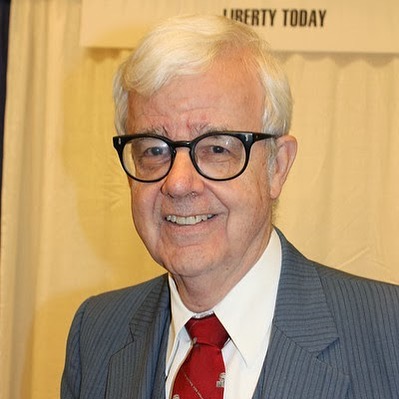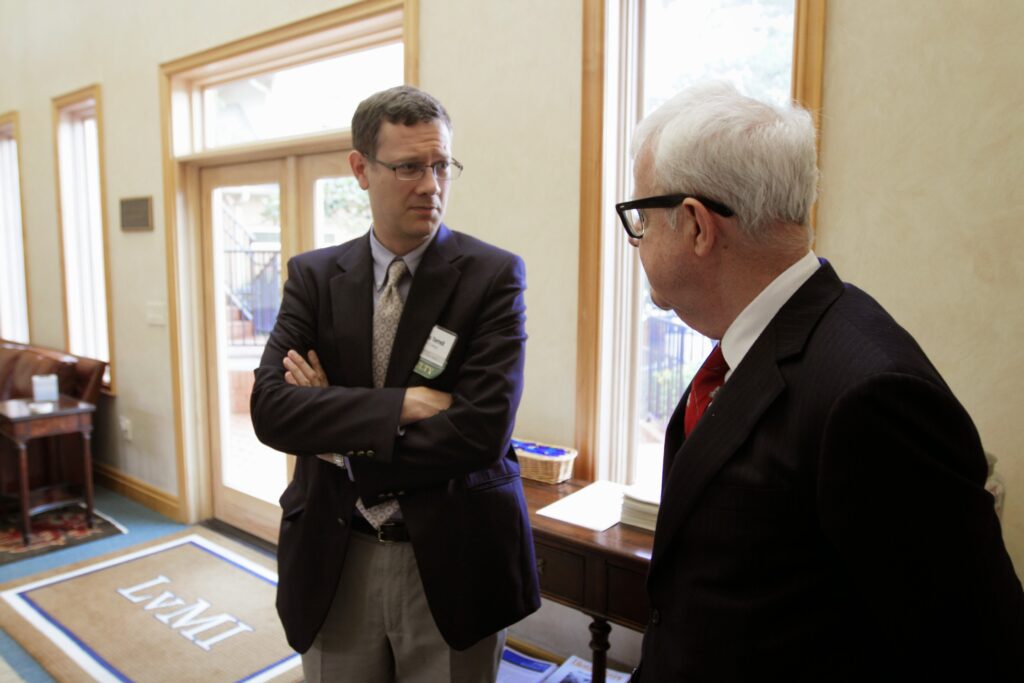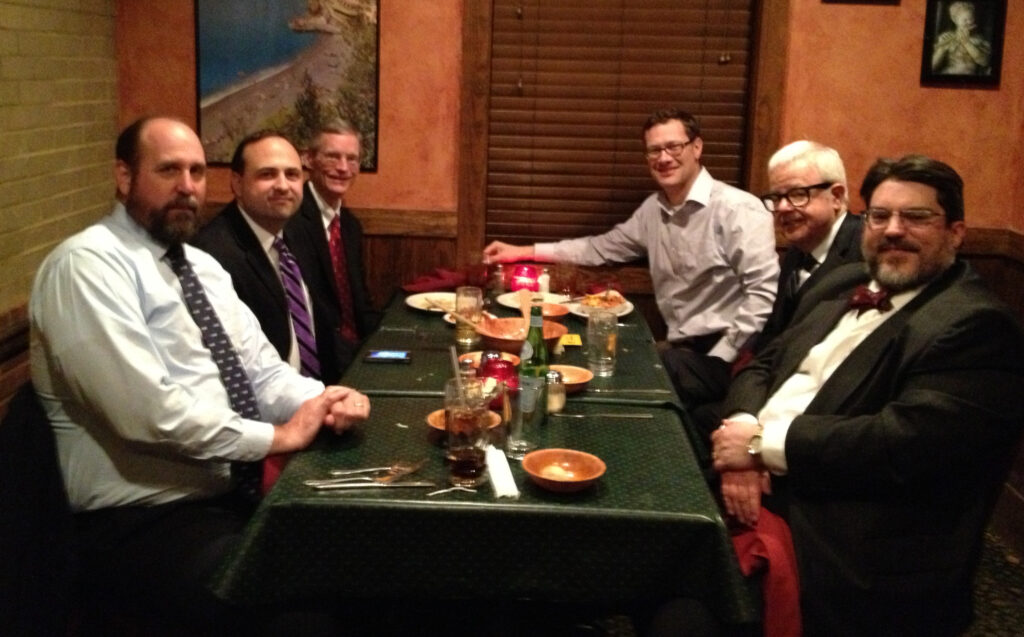On February 24, 2022, Gary North died at age 80 after a long battle with cancer. A prolific author, with more than 50 books on economics, history, and Reformed Protestant theology to his credit, as well as thousands of articles (e.g., garynorth.com), North was influential in conservative Christian thinking about politics and the economy for over 50 years. His work will doubtless remain so for many more years.

North was a leader in the “Christian Reconstruction” movement that was attractive to some conservative (in the theological and political senses of the word) Reformed (Calvinist) Protestants. Coming out of the philosophical and theological work of Westminster Theological Seminary professor Cornelius Van Til (1895–1987), the movement was given its distinctive character by Van Til’s student Rousas J. Rushdoony (1916–2001), North’s father-in-law. The Reconstructionist view is that the foundations of modern secular society have crumbled, and Christians have a responsibility to “reconstruct” all of society on biblical principles. This put them at odds not only with secularists, but many within Protestantism who were pluralist in their political views. Reconstructionists gained a reputation as abrasive and divisive in church settings, willing and able to write trenchant responses to all critics. North’s style was forceful and direct: this is how it is; take it or leave it. His rejection of the “if-that’s-OK-with-you” tone of many evangelicals became infamous. It was easy to voice complaints about North’s style; it was not so easy for churchmen to refute his work.
Though North frequently stoked controversy, his legacy, as George Grant said, “extends far beyond that prolific and often combative public persona. He was an extraordinary encourager and an untiring facilitator. To be sure he could be unstinting in his blunt assessments—but it was always with an eye toward serving, equipping, and preparing others in their calling.” One did not come away from a conversation with Gary North without being exhorted to do more good work, often with practical, specific advice on how to get it done. While working with him on a project years ago, I found myself discouraged at the volume of work before me, unsure how I would find the time. After a brief exchange with North on the matter (which included one of those unstinting assessments) I put my nose to the grindstone and completed the project. Many younger scholars found themselves accomplishing more than they thought they could have, urged on by North’s own example of diligence and focus.

On economic matters, North and the other Reconstructionists were deeply influenced by Austrian economists. In 1962, North met Rushdoony at a summer seminar at St. Mary’s College, and started asking Rushdoony questions about Ludwig von Mises. Rushdoony secured an internship for North at the William Volker Fund, at that time one of the best-endowed free-market foundations in the United States. North began reading Austrian economics: Mises, Hayek, Rothbard, and Röpke. In 1971, Leonard Read put North on the senior staff of the Foundation for Economic Education. North finished his doctorate in history while at FEE, and then joined Rushdoony’s Chalcedon Foundation. While at Chalcedon, North started the Institute for Christian Economics, which became the venue for his output for most of his career. He worked as a research assistant for Ron Paul during the congressman’s first term, and then began writing full time.
Though the foundations of North’s Christian economics are necessarily different from those of Mises, Hayek, or Rothbard, North believed that Austrian economic thought was valuable in understanding the world, and he contributed to that work where he could. (One example is Mises on Money.) Like most Austrian economists, North opposed centralized government planning, favored the gold standard, and argued for the necessity of private property and the free market in a prosperous economy. Late in his career, North became an Associated Scholar with the Mises Institute, and gave several addresses at Mises Institute conferences. He donated a large part of his extensive personal library to the Mises Institute.

North’s religious foundations would not allow him to adopt all Austrian or libertarian ideas. He was not an anarcho-capitalist. North criticized “Men of the second half of the nineteenth century who prided themselves in their defense of autonomous natural science’s autonomous natural universe,” who were “attempting to banish God’s sovereignty by banishing the concept of transcendent cosmic purpose.” He believed that secular epistemologies, including that of the Austrian School, were fundamentally flawed. While North could go along with many Austrian School views, then, he parted ways at a deeper philosophical level. Some of North’s criticisms are discussed in this paper.
Much of Gary North’s work comprises biblical exposition directed at forming a Christian view of the world, and especially of economics. Outside Protestant circles, his religious writing would be of little interest, except to inspire outrage. When H.L. Mencken wrote his obituary of J. Gresham Machen (the founder of Westminster Theological Seminary who hired Cornelius Van Til), Mencken noted that he stood “much more chance of being converted to spiritualism, to Christian Science or even to the New Deal than to Calvinism, which occupies a place, in my cabinet of private horrors, but little removed from that of cannibalism.” Yet Mencken admired Machen’s courageous and intelligent struggle against modernists in seminaries and churches, saying that he “argued them quite out of court, and sent them scurrying back to their literary and sociological Kaffeeklatsche.” Gary North’s religious views would be well within Mencken’s horror cabinet, and his campaign against political pluralism aroused the ire of many churchmen just as Machen’s campaign against ecclesiastical liberalism did. But though many will disagree with his fundamental principles, North’s lifelong project of developing a Christian view of economics has created a force to be reckoned with. In losing Gary North, Reformed Protestants are deprived of a hard-working scholar who sought to create biblical blueprints for Christian society, without compromise or apology.

2 thoughts on “Gary North’s Christian Economics”
Comments are closed.